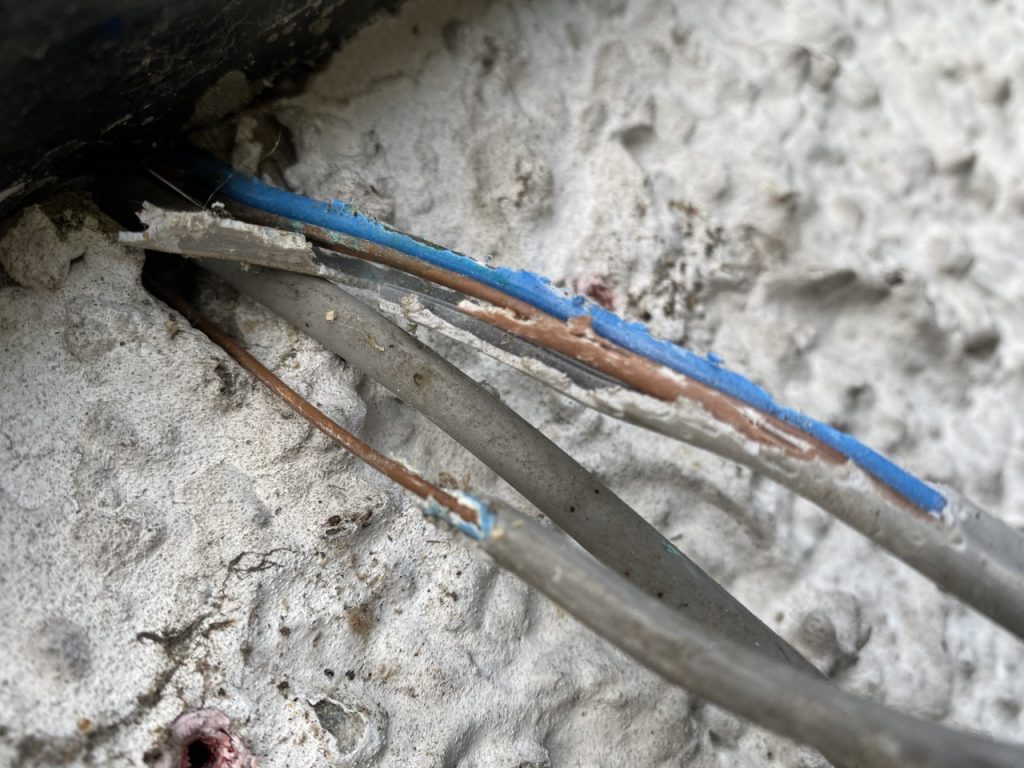Generally Harmless
Loose Outlet Plug
Turn off the breaker. Double check for voltage to the outlet (use a volt meter, volt stick or plug something in). Screw the cover plate back until outlet is flush with the wall. If this is not possible then contact us.
Broken Light Switch
Turn off the circuit breaker or remove fuse. Use a flathead screwdriver to remove the faceplate. Test the two wires for presence of electricity. If it’s safe, disconnect and add new light switch.
Short Circuits
Some electrical appliances, such as hairdryers, can frequently trip or short circuits. Reset the breaker. However, repeated occurrences with the same appliance indicate a faulty appliance. Therefore, not the electrical system. If electrics still trip with appliance removed then you need assistance of an electrician.
Damaged Extension Cord
Unplug both ends. Cut off the old plug. Gently score and peel back the insulation jacket. Strip each wire with a wire stripper, twisting each wire tightly at the end. Screw them into the back of the plug: black to gold; white to the silver screw; green to the green screw. Then close the plug and secure the wires. Cut in the middle? Purchase extra ends and turn the damaged cord into two new ones.
Hazardous
Flickering or Dimming Lights
This could be a sign of a poor connection and can lead to eventual arcing – loose/corroded connections making intermittent contact that could result in sparking, overheating, and fire.
Light Bulbs Burn Out Frequently
If you’re experience frequent bulb blowouts, it could be more serious than overuse. You may have a loose connection in the socket or circuit. Recessed lights that frequently fail? Nearby insulation could be causing overheating and these fixtures are designed to shut off to prevent fire.
Dead Outlets
Dead outlets can result from a tripped poor connection (and possible arcing), or a tripped breaker due to excessive heat buildup resulting in melted wires or outlets.
Warm Outlets or Switches
Unless it is a dimming switch, warm outlets are as a serious safety concern and should be addressed by a pro immediately.
Frequently Tripping Breakers
Usually a sign the circuit is overloaded and using too much electricity. You should add a circuit or consider upgrading your electrical service.
Is it time to rewire?
